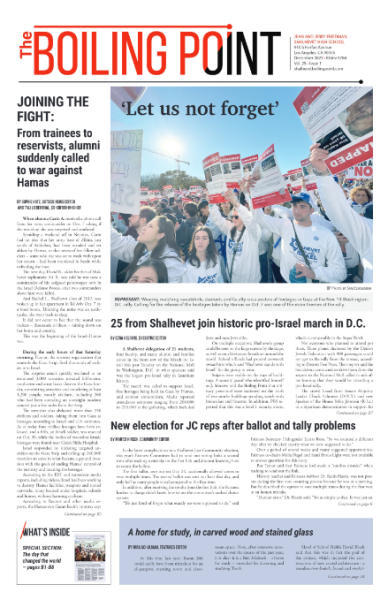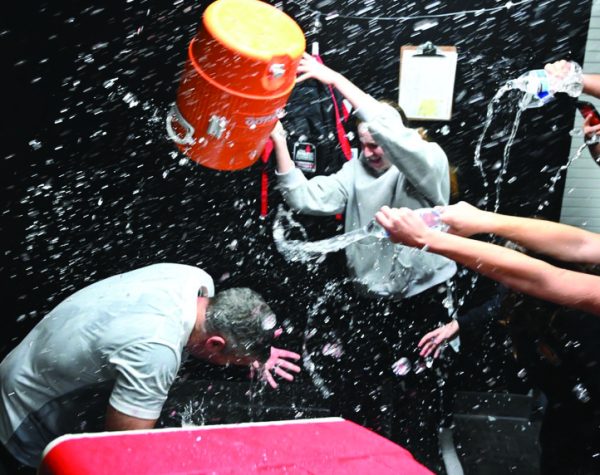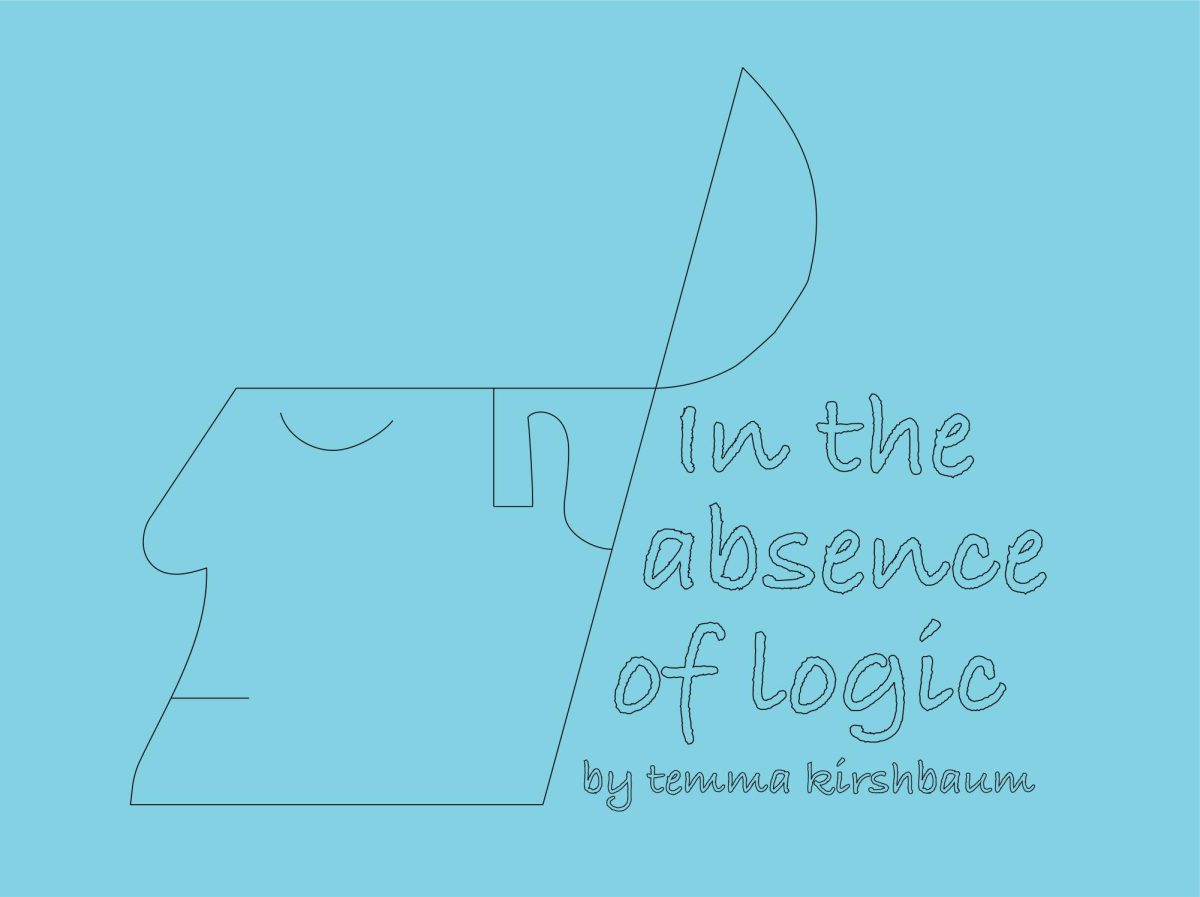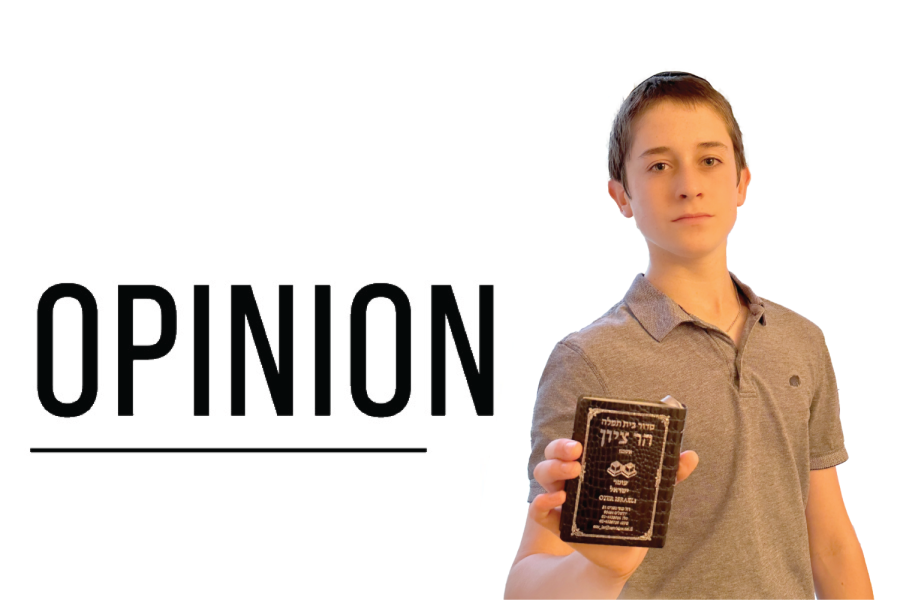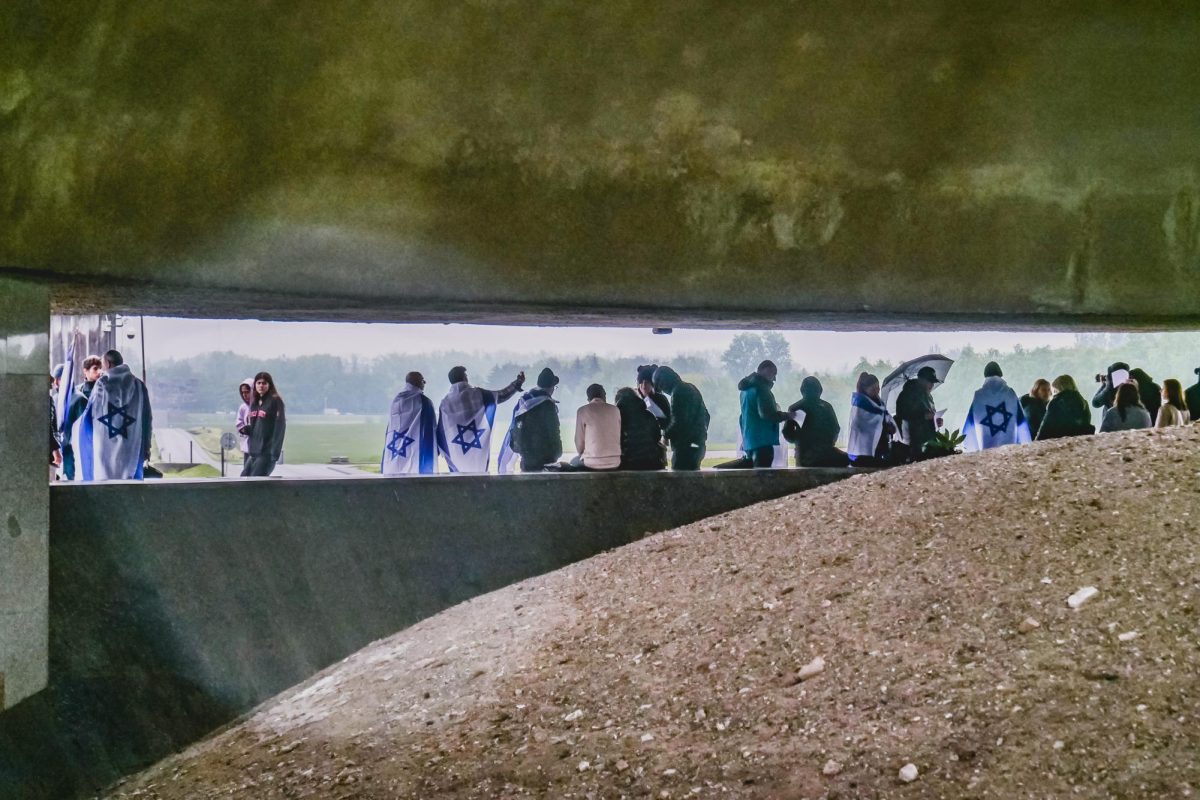Shalhevet offers an abundance of extracurricular activities, several of which include out-of-state trips. The Boiling Point has two such trips planned, the debate team has three, and the varsity basketball team has at least two. In the past, students have been able to participate in as many of these events as they desired, but now there is a new rule that does not allow students to travel more than once in 30 days – the so-called 30-day Rule.
For any student who is a part of multiple extra-curriculars, it is very likely that a conflict will arise and he will be forced to pick one extra-curricular over another. Since every trip offers more participation and learning opportunities, restricting exposure will weaken the student’s experience in the activity whose trip is missed. Team and club members in all four grades are wrestling with this while you are holding this paper in your hand.
The effects will play out in several ways. First of all, the 30-day Rule will weaken every team and extra-curricular. Model United Nations and Penn Model Congress occur within the same month, for example, so the captains of each conference will have to compete for new recruits and the top debaters will not be able to go on both conferences. Basketball and Boiling Point trips are in the same months as debate trips. No one team is going to be fully staffed and Shalhevet’s chances will be hurt in all three kinds of competition.
Second, the debate teams only recently unified and began practicing as a group; prior to that, there was real tension between the teams, mostly due to fighting over debaters. Now that it has finally begun to function as one team, we should not implement a rule that brings back old problems with a vengeance.
Third, exceptions are already being made. Recently, one student was granted permission to compete in Princeton Model Congress and then attend the newspaper trip to Kansas City in the same month. Students may now sign up for multiple extra-curriculars hoping to become such an exception, only to be limited to just one trip in the end. If a practicing member of the team is removed on short notice, much of the strength of the team is lost.
To solve all these problems, the rule should simply be revoked and, as in the past, it should be left up to the student and his or her teachers and advisors to decide which trips to take.
If a student feels he can do well enough in school while going on three trips in one month, then so be it. If not, then he simply will not go. And if he’s wrong, he’ll learn something about himself. This is how it’s always been in the past, and Shalhevet students have gotten into top colleges and done well on SATs. It’s obvious that some students are capable of sustaining quality grades in spite of numerous absences.
Proponents of the 30-day rule are also ignoring the fact that the trips contribute to students’ education. Bringing home a golden gavel or the skills to produce an award-winning newspaper last longer than most of what would have been learned in three or four days of school. Basketball trips develop the skills of individual players and propel them to new levels of teamwork.
Last year, on the plane ride home from Penn Model Congress, students could be seen typing essays on their laptops, reading their AP History books, and doing math homework. Much of the effect of being gone was nullified by the work that they were able to accomplish on the plane and during free time throughout the trip.
Although the policy might help some students improve their grades, a blanket rule is not necessary. As nearly two decades of Shalhevet students have shown, we are mature enough to be given the responsibility of deciding about trips for ourselves. At age 16, the government even permits us to drive, putting lives in our hands. Not allowing students to decide for themselves what trips they can go on hurts the school, cuts students off from some of the most valuable learning experiences of our high school years, and demonstrates ignorance of our capacity for responsibility.
If it’s not broken, why fix it? The old system was good enough for last year’s seniors, whose championship debaters, athletes and journalists were accepted to Harvard, Columbia, Penn, Johns Hopkins, Wash. U. in St. Louis, Rice and Cornell among others. It should be good enough for the classes of 2011, ‘12, ‘13 and ‘14.











